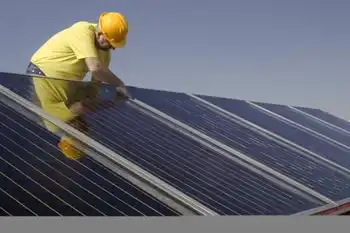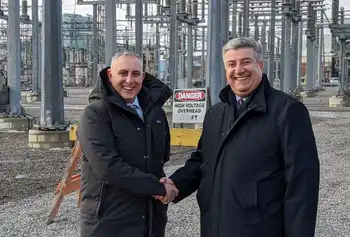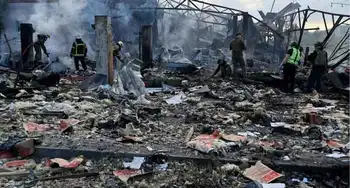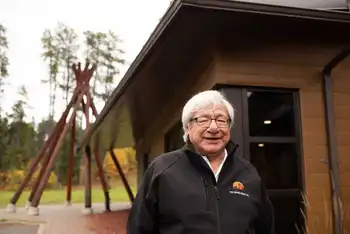TVA reactors modified to avoid explosions
BROWNS FERRY, ALABAMA - Three nuclear reactors at TVA's Browns Ferry plant are the same basic design as those that suffered explosions at the Fukushima Dai-ichi plant in Japan, however TVA's reactors were modified years ago to prevent conditions that could lead to such explosions, a TVA official said.
Events in Japan surrounding the crippled Fukushima Da1-ichi nuclear plant are prompting the Knoxville-based federal utility to review its own nuclear program. TVA operates six nuclear reactors at three plants, which make enough electricity to power more than 3 million homes in the Tennessee Valley. And it is studying whether to complete a partially built nuclear reactor or build a new one at the idle Bellefonte site in Hollywood, Ala.
TVA had scheduled a tour of its Watts Bar Nuclear Plant near Spring City, Tenn., for the media on March 16, but canceled it because of events in Japan.
Both the Japanese plant and Browns Ferry near Athens, Ala., have General Electric Mark I nuclear reactors, but all U.S. versions of the reactor, including those at Browns Ferry, have been modified to correct a design problem that would allow a dangerous build-up of hydrogen, said Ray Golden, senior manager of nuclear communications at TVA.
"There was a really important modification made to all our GE-designed reactors in the mid-1980s. It had to do with improving reactor safety," he said.
A pipe was strengthened so that it could safely vent hydrogen under high pressure outside the reactor containment building, where it could disperse harmlessly in the air instead of building up to a sufficient concentration inside to ignite if there was an electrical spark. Before the modification, the system for containing the release of radiation from a Mark I reactor during an emergency wasn't sturdy enough to safely vent hydrogen, which would be under very high pressure, Golden said.
The GE Mark I reactor has come under fire by experts, as detailed in a March 15 New York Times story. Designed in the 1960s, the reactor is accused of having a containment vessel and pressure suppression system that are more vulnerable to rupture and explosion from a build-up of hydrogen compared to other reactors, according to the story. Explosions at the Fukushima Dai-ichi plant after it was hit by the recent earthquake and tsunami are believed to be the result of hydrogen build-up.
Golden said he doesn't know if the safety modification made on U.S. Mark I reactors also was made on the reactors in Japan, but TVA is trying to gather information.
Another issue with the Japanese nuclear plant is the danger of spent fuel rods kept in storage pools on-site that are exposed to the same fires and explosions.
TVA puts spent fuel rods in wet storage for five years to allow them to lose enough radiation to be placed in special steel and concrete containers for dry storage, Golden said. TVA currently has spent nuclear fuel in dry storage at Browns Ferry and at its Sequoyah nuclear plant near Chattanooga and always has fuel in wet storage somewhere, he said. TVA planned to dispose of its spent fuel at the proposed Yucca Mountain site that would handle all such waste for the country, but that proposal was nixed by the Obama administration. There has been talk in Congress about reviving the idea, and Golden said such a site would offer advantages to TVA.
"Right now, we have to put spent fuel in pools and in dry storage. But if we had it the Yucca Mountain facility we could ship it off in special trucks to be buried deep underground," he said.
Bill McCollum, TVA's chief operating officer, said in a video posted on the utility's website that TVA is closely monitoring the situation in Japan and has set up a command center to gather information that TVA will study and look for lessons to apply to its own nuclear program. U.S. Rep. Edward Markey, D-Mass., a critic of nuclear power, has called for a moratorium on new nuclear plant construction while the nuclear crisis in Japan is assessed, but McCollum said it was too early to determine what is happening in Japan and TVA intends to move forward with its nuclear program.
"We are looking at this situation closely in Japan we are going to understand the lessons learned from these events, and we are going to incorporate those in our operations and our plans to make sure that we continue to provide safe and reliable power for the future," McCollum said.
Tennessee's congressional delegation is supporting TVA's stance.
Rep. John J. Duncan Jr. said through his staff that the country should not halt nuclear plant construction but should look more closely at the construction of any plant built near a fault line.
Sen. Bob Corker said in a statement: "We are all very saddened by the terrible tragedy in Japan. We should learn from Japan's experience as we continue to press ahead with the nuclear program in this country."
U.S. Sen. Lamar Alexander said that the events in Japan were no reason to abandon nuclear energy in the United States.
Related News

Avista Commissions Largest Solar Array in Washington
SPOKANE - Official commissioning of the Adams Nielson solar array located in Lind, WA occurred today. The 28 Megawatt DC array is comprised of 81,700 panels that span 200 acres and generates enough electricity to supply the equivalent of approximately 4,000 homes annually.
“Avista’s interest in the development of Solar Select, a voluntary commercial solar program, is consistent with the Company’s ongoing commitment to provide customers with renewable energy choices at reasonable cost,” said Dennis Vermillion, president, Avista Corporation. “In recent years, an increasing number of Avista customers have expressed their expectations and challenges in acquiring renewable energy. Avista is pleased…




